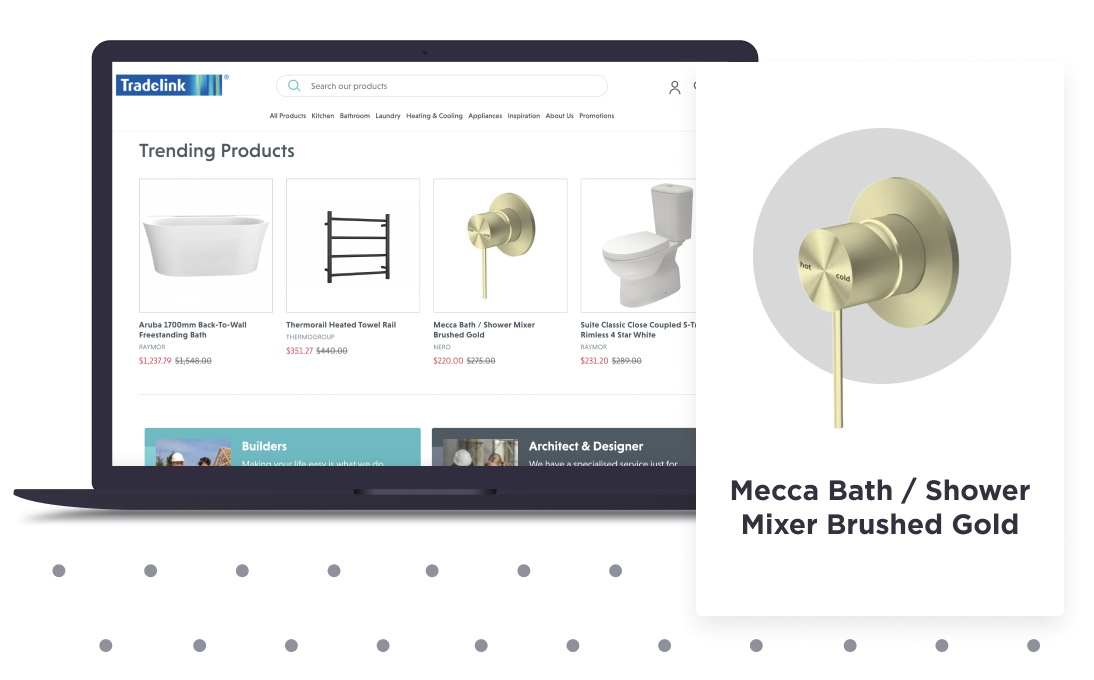- Enterprise
- Essentials
BigCommerce vs Shopify
Sell more and stress less with all you need for faster launch and growth — right out of the box.

BigCommerce vs Shopify: Why businesses are making the switch
BigCommerce makes it easy to get your online store up and running quickly — with all the built-in features you need to save time and money.
Out-of-the-Box Functionality
Shopify charges additional transaction fees up to 2% per sale for merchants who do not use its proprietary payment provider. BigCommerce provides more of the native features you need to build store functionality and customer experience your way — without penalizing you by adding fees.
Greater Usability, Lower TCO
At a glance, BigCommerce and Shopify’s plans can look fairly similar. However, after examining the cost of third-party apps and add-ons, it’s easy to understand why store owners choose BigCommerce. Our native apps, automatic platform and feature updates and flat-rate pricing help reduce costs and reduce replatforming time — saving merchants up to $20,000 - $30,000 per year.
Built for Growth
With rigid API call per second limits, a cap of 100 SKUs per product and only three options per product, Shopify makes it difficult to adapt as your business grows. BigCommerce is built to grow with your business with up to 600 SKUs per product and 250 options. No matter how big you want to go, you won't outgrow us.
Why SEO Capabilities Matter
Strong SEO is a key way to improve your website’s ranking and help your customers discover you. Shopify lacks fully customizable, optimized URLs, access to edit robot.txt and CDN. BigCommerce has a distinct performance advantage, offering all of these features out-of-the-box, as well as microdata, 301 redirects and URL rewrites and a CDN (content delivery network).
BigCommerce Success Stories
Common BigCommerce vs Shopify questions
What is the difference between BigCommerce and Shopify?
Shopify and BigCommerce may seem similar — but, in fact, they have two very different business models. Shopify heavily focuses on driving its proprietary services and thus acts as a payment gateway, a shipping and fulfillment provider and an email marketing service, all while still being an ecommerce platform.
In contrast, BigCommerce offers only one core product: its ecommerce platform. As a result, BigCommerce focuses all of its resources on building the best cloud-based, multi-channel solution in the industry. With Open SaaS, BigCommerce combines the best of a SaaS platform with API-enabled openness to give merchants more flexibility in customizations and integrations — while handling site maintenance and updates so that you can focus on growing your business.
What is the price comparison between BigCommerce and Shopify?
At first glance, BigCommerce and Shopify’s plans can look fairly similar. A Basic Shopify plan costs $39 monthly, a Shopify plan costs $105 monthly and an Advanced Shopify plan costs $399 monthly, while a BigCommerce Standard plan costs $39 monthly, Plus costs $105 monthly and Pro costs $399 monthly.
However, unlike BigCommerce – which includes out-of-the-box functionality in its flat-rate pricing — Shopify relies on third-party apps, paid extensions and plug-ins to make up for gaps in native functionality, which can greatly increase your total cost of ownership once you add in all of the necessary apps for your online store.
In fact, Shopify requires a third-party app to achieve the 600 product variants, multiple option display types, wishlists and persistent cart — all of which can be done on BigCommerce natively.
What sales features do BigCommerce and Shopify offer?
While both BigCommerce and Shopify offer essential sales features such as basic shipping tools, multichannel selling and a customizable checkout, many of the sales features that are native on BigCommerce require a third-party app on Shopify.
With BigCommerce, merchants get all of these features out-of-the-box, which means you don’t have to download tons of apps for core store functionality.
BigCommerce supports up to 600 SKUs per product, multiple display option types, custom fields, manually specified prices in different currencies, price lists, quantity-based price breaks, wish lists and persistent carts.
For B2B customers, BigCommerce provides robust sales features including POS and ERP integrations and B2B-specific payment features through partners for reliability and performance.
Do BigCommerce and Shopify offer native SEO capabilities?
Shopify has limited SEO customization and requires various third-party apps to reach feature parity with BigCommerce.
BigCommerce, however, offers robust SEO capabilities, giving you full control over your URLs, title tags, header tags and metadata.
These are some of the SEO tools we provide right out of the box:
Optimized URLs: For product, category and other pages, BigCommerce auto-populates SEO-friendly URLs and allows merchants to alter their URL settings.
Unique URLs: Every unique page has its own URL which helps prevent duplicate content.
Microdata: These are “rich snippets” built into product pages that improve your search result listings.
301 redirects and URL rewrites: If during the migration process you decide to rename products, BigCommerce will redirect the existing URL to the new URL so that customers can easily navigate to the products they’re looking for.
CDN (content delivery network): BigCommerce’s CDN is constantly working behind the scenes to ensure your online store loads quickly for both customers and search engines
Which platform has better security: BigCommerce or Shopify?
As SaaS platforms, BigCommerce and Shopify are both PCI DSS 3.2 certified at Level 1 to protect against data theft and fraud. Both platforms also offer additional protective measures such as multi-layer security and automatic bug fixes.
When it comes to building and managing your ecommerce store, merchants using BigCommerce don’t have to worry about staying up to date and keeping their site secure. Since updates happen automatically, it's easy to always be on the latest version of BigCommerce.
Plus, there are no security patches or updates that require certified developers to install and manage. This gives non-technical merchants the ability to focus on core business activities rather than worry about the upkeep of their website.
What kind of customer support will I get with BigCommerce and Shopify?
Both BigCommerce and Shopify provide 24/7 customer support via phone, email and live chat, and both platforms also provide a help center, a community forum and video tutorials.
With BigCommerce, we provide fast, US-based support. On average, users are speaking to a live support person in under two minutes, and over 85% of issues are resolved on the first call.
Our support is a big reason why BigCommerce leads the industry in trust and customer satisfaction (Forrester Wave, TrustRadius, G2).
How do I migrate from Shopify to BigCommerce?
BigCommerce makes seamless migration easier with expert support. In our app marketplace, you’ll find a variety of apps dedicated to data transfer and migration services, or you can get in touch with our Data Migration Services team who can help you seamlessly migrate and launch your store on BigCommerce.
Recommended Resources
Grow your business with BigCommerce
Learn how BigCommerce can help grow your business without cost or complexity.



